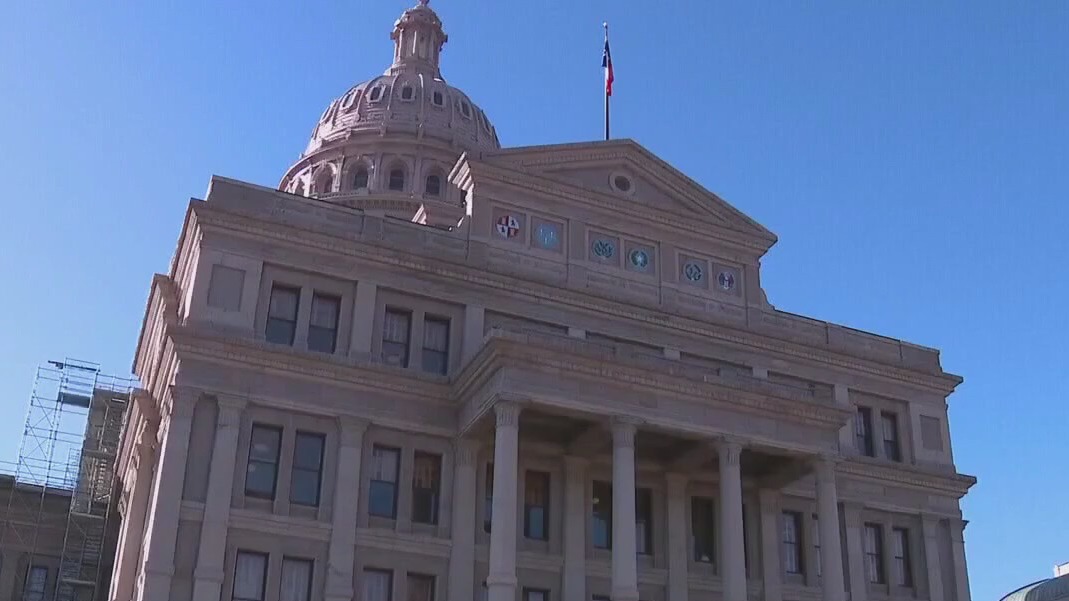Future uncertain for Texas teachers after legislative gridlock

Teachers uncertain after Legislative gridlock
Efforts to increase funding for districts failed this spring. And on top of that, one of the governor's top priorities has been a school voucher program, which many educators say could negatively impact public school districts.
AUSTIN, Texas - After months of gridlock in the state legislature, the future is still uncertain for Texas teachers heading into the new school year.
Efforts to increase funding for districts failed this spring. And on top of that, one of the governor's top priorities has been a school voucher program, which many educators say could negatively impact public school districts.
Zeph Capo, the Texas president of the American Federation of Teachers, joined FOX 7 Austin's Rebecca Thomas to discuss.
Rebecca Thomas: What was behind the gridlock in the legislature, and how will it affect educators across the state this fall?
Zeph Capo: Well, unfortunately, the gridlock really was caused because there was a quid pro quo set up by some in the legislature to only pass new funding for public education if the legislature agreed to pass funding for private schools. And as many of us know, private school vouchers have a very negative connotation, particularly in the state of Texas. And that just wasn't something that teachers, public education supporters and most parents and families thought was the right direction.
Rebecca Thomas: You know, Governor Abbott has hinted at a special session later this year to improve what he calls parental choice. A central issue for that has been school vouchers, which we just mentioned. If passed, how would this program affect the average student in Texas?
Zeph Capo: This has a potentially detrimental effect on our students. You'll hear their legislator talk about it being a small, isolated amount of funding, but that's what they said in Arizona. And it's now grown to be billions of dollars taken out of the public education system to fund unproven and unregulated private schools, many of which have been popping up just for the sake of being able to cash in on these available tax dollars. That's not the direction we want to see for Texas schools. Texas schools already run on a very lean budget as it is in most places, and taking any additional funding out of the system could be detrimental to additional programs like Friday Night Lights, like elective classes, like all the sports, all the things that kids actually want to come to school for because we know that they're not going to take funding away from the tested subjects.
Rebecca Thomas: Let's talk about HB 100 to improve teacher pay that failed in the spring. Where does that leave school districts in the new school year?
Zeph Capo: With a tremendous amount of uncertainty, with many of our school districts actually having to pass deficit budgets in order to retain the teachers that they had to make sure that they were actually certified teachers there to greet kids in August. You know, it's really having a devastating impact. And we don't really see it getting much better. We certainly don't have a lot of hope that this legislative session is going to do good things for public schools. But I would love to be proven wrong.
Rebecca Thomas: What are you hoping for if you know in the future when it comes to funding public schools?
Zeph Capo: I think that we need to actually have full funding. I think that we need to have transparent funding. I think that we need to focus on making sure that our students have what they need. There was a push to have funding done based on enrollment numbers for students this year, which would have been accomplished in part by House Bill 100 had it passed, which wasn't a perfect bill but was certainly a good place to start. Unfortunately, when we weighed that down with just frankly, very negative policy, that would have taken it backwards, we weren't able to get not only the salaries for teachers, but the additional funding for kids, for limiting those proficient kids, for special education, kids that could have been available had we actually used some of that $33 billion surplus to fully fund our schools.

